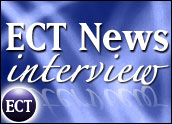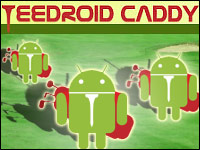
Larry Sanger was an early participant in Wikipedia, and in 2006 he founded the Citizendium, which bills itself as “the citizens’ compendium.”
Like Wikipedia, Citizendium is an encyclopedia that invites the public to contribute. The two share other similarities as well, but they are distinctly different as well. LinuxInsider spoke with Sanger about the project and how it stands apart from other wiki encyclopedia sites.
LinuxInsider: First off, describe the Citizendium and tell me what it is, and what it is not.
Larry Sanger:
The Citizendium is a wiki encyclopedia project to create the world’s finest free encyclopedia and general reference source. It involves the general public but it makes a gentle guiding role for experts. Another different unusual feature of the project is that our contributors use their own real names. I like to think the people are pretty friendly. The whole project is largely vandalism-free, largely because of the use of real names. In addition to being a general wiki encyclopedia project, we also are inviting people to contribute other kinds of information, all clustered around a given topic.
For example, if you go to our biology page and you look at the top of the biology page, you’ll see a green navigation tool and you’ll see various tabs there — related articles, bibliography, external links, gallery, signed articles. There isn’t a lot of information in all of those tabs, but the point is we have a framework in place where we can invite different kinds of information. There’s other kinds of sub-pages that we allow and encourage.
We aim at not just a very large encyclopedia — we aim at a very high-quality encyclopedia as well. We realize that this is going to take some time — we just got started a little over a year ago — but we think we’ve made excellent progress so far and, after some more years of plugging away at it, we will have a reference source that is comparable in quality to traditional encyclopedias.
LI: You are a former Wikipedia person — you were one of the founders. How does the Citizendium differ from Wikipedia? How are they the same? How are the two distinguished?
Sanger:
We have a page on the wiki about that. It’s called, “We aren’t Wikipedia.” We’re similar in some very important ways: We both aim to create a giant free encyclopedia; we’re both managed by nonprofits; we both use MediaWiki software. We are a wiki, and no credentials are required to participate. A number of our policies are fairly similar to Wikipedia. You could say that we borrowed some of the more sensible policies from Wikipedia. The projects are the same in that the same person started both of them.
They differ in some extremely important ways, and the ways in which they differ I think really justify and explain why we have another project altogether. We have a role for experts in our system. They can approve articles — which is to say that they can certify them as reliable. They can also make decisions, when decisions need to be made — in the case of some sort of conflict that can’t be resolved by consensus, something we do try to get to but don’t always succeed, of course.
You could say that the project is gently guided by experts, but that doesn’t mean that they issue orders in any top-down sort of way. Our expert editors work shoulder-to-shoulder with everyone else on the wiki, and that is a difference that makes a difference. While the wiki itself works similarly to Wikipedia, we have these people who are working in the system who are specifically recognized for their vast knowledge on certain topics that they happen to have studied for a long time in their lives, and we think that’s just the sensible approach to take for a knowledge project.
The second really important difference is that we use our own real names. We actually require a short bio — at least people have to tell us what their educational background and their interests are. We actually have to have a little bit of accurate knowledge about who we are dealing with and we want our community to be an extension of the real world, not a massively multiplayer online role playing game. We’d like it to be the case that when you look at the recent changes page and you look at the comments that are appended to the articles, you can trust that you know who you’re dealing with. And that’s true regardless of whether you’re a contributor or a reader. We actually think that by using our own names we increase the credibility of our content.
The third really important difference between Wikipedia and Citizendium is that we ask all of our contributors to agree to a statement of fundamental policies. This acts like a kind of social contract. This basically makes it possible for us to perform a little bit of gentle rules enforcement. If someone gets out of line, they can’t do what people do often on Wikipedia and say, “I disagree with this policy” or “I think you’re interpreting the policy incorrectly” or “I think the policy should be changed.” People are able to do that within the Citizendium system but they are bound to follow the rules that are on the books. They’ve agreed basically to follow those rules, and there are mechanisms whereby the rules can be fairly enforced by relatively mature people, the people called “Constables.” The result is partly because we use real names and partly because our contributors are bound by this social contract, the community is fairly polite and friendly. We’re not angels or anything, but I think we get along well, considerably better than Wikipedia does.
LI: I’ve heard stories about Wikipedia and some of the things that happen within that community.
Sanger:
There’s no shortage of horror stories. There’s been quite a few scandals on Wikipedia. We hope we won’t be subject to at least as many of those as we grow larger ourselves.
LinuxInsider: How much of the difference, especially in policies, reflects lessons you’ve learned at Wikipedia?
Sanger:
I would say that the policies that are in place on Citizendium are a direct reflection of what I’ve learned on Wikipedia and other projects. I like to think that I’ve learned what works and what doesn’t work from a number of projects that I’ve been involved in. This set of policies that I’ve put in place — or that I’ve gotten behind anyway — a lot of time it isn’t just me who’s put them into place. A lot of times it’s my latest, best guess at how a really robust but high-quality wiki project should be set up.
LI: There seems to be some question of balance between control and allowing people to follow their own whims. We’ve heard the term “crowdsourcing” before. Can the public at large be trusted to get it right or do they need some level of command and control, for lack of a better term?
Sanger:
I think the general public can be trusted to get it right for the most part, and I’m strongly opposed to command and control. This is why we allow basically anyone who has a reasonable command of the English language and is 13 or older to come to the wiki and get to work on whatever they want to, whenever they want to. I think people who come to the Citizendium will actually find that there is less control going on on Citizendium than on Wikipedia, and I mean that literally. That’s in part because Wikipedia is such an active project and Citizendium isn’t as active as Wikipedia — I understand that.
But I also think that it has a lot to do with the fact that we’ve simply got a more sensible set of initial guidelines. People just sort of naturally behave themselves better when they get into our community, so I guess the idea is there isn’t really a need for command and control. If you want to write an article about something, go ahead, do it. If you want to edit someone else’s article, even an article that was written by an editor, you can do that too. Just as on Wikipedia, you will have to negotiate with the other contributors. Believe me when I say that in the vast majority of cases, editors will not lord it over you. In other words, they aren’t going to throw their credentials and their authority as editors in your face.
On the other hand, if you have a disagreement with an editor, and it really comes down to a question of a genuine content question — something that ought to be a matter of expert knowledge or not, then the editor is going to get his way, basically. However, even that being said, if you really press the issue, we have a dispute resolution process in place. It’s not as though the editors have a complete run of the place and authors — the general public in other words — simply have to do what they say. It’s more complicated than that. In a very real sense, we’re as much — if not more — of a bottom-up project than Wikipedia is. What I mean is that there aren’t so many people hanging over your shoulders citing policy at you. We tend to be more respectful.
LI: The whole idea of a collaborative wiki has really spawned a lot of offshoots — the most recent was the Encyclopedia of Life, which had some problems the other day. Can you give me a broad look at collaborative wikis and what the whole Wikipedia effort started? Do you think it’s going in the right direction?
Sanger:
Especially when Scholarpedia and then Citizendium got started in 2006, people started asking themselves whether there isn’t a better way to use wikis. I can tell you there’s been a lot of wikis and a lot of encyclopedia-like projects, and it would be foolish of me to pretend that I could give an overview of all of those, but there are some highlight projects that I’ve been involved in or I know about.
Wikipedia itself led to a few offshoots. In the very early days of Wikipedia, when I was the chief organizer, we floated the idea of paying my salary by selling ads. As a result of that proposal, the Spanish Wikipedians broke away and they formed their own Spanish wiki encyclopedia. The Spanish Wikipedia is now much larger than that Spanish encyclopedia.
There were a couple of people who were disaffected by in one way or another by Wikipedia in the first couple of years who started their own competing wikis. They never got to be very big, they had several thousand entries, but they never had anything the size of Wikipedia.
In 2005, I was working for something called the “Digital Universe Foundation.” We worked with a group of people called the “Environmental Information Coalition.” They asked me to help them plan out an Encyclopedia of Earth. It’s actually not too bad. They’ve got several thousand articles themselves from numerous credible sources. I don’t know how many articles they’ve written themselves to tell you the truth, but they’re still ticking and they still seem to be doing pretty good work. They’ve got a very impressive group of people behind them. The difference between that and Wikipedia or even Citizendium is that the articles are prominently signed and it is possible on the Encyclopedia of Earth to contribute to someone else’s article, but it doesn’t seem to happen very much. There’s a little collaboration but not that much going on, and also the actual development of the articles happens behind the scenes, so you don’t get to see the sausage being made — they only post the articles that are approved.
There’s Scholarpedia, they got started in the beginning of 2006. Its scope is limited to topics within mathematics, computer science, astrophysics and artificial intelligence. They only have a couple of thousand articles — last I looked, they had published just under a thousand articles. The really great thing about Scholarpedia is that they have some extremely impressive people involved — they have the leaders of the fields writing for them. There aren’t very many other Web sites that work quite that way. One Web site that does work that way well predates Wikipedia, it’s called the “Stanford Encyclopedia of Philosophy.” They have this editorial system where articles are specifically assigned by experts in the field. Scholarpedia doesn’t quite work that way, but nevertheless they do invite the leaders of various fields to write really excellent articles. The development all takes place out in the open, unlike the Encyclopedia of Earth. Scholarpedia’s development can be viewed — you can actually look at their recent changes page. I have to say I admire all of these projects. I think they’re all doing the world good. They’re all making solid contributions to their field. I hold a special place in my heart for the Stanford Encyclopedia of Philosophy. As a philosopher, I can tell you that their articles are absolutely superb and their editorial board is a who’s who of philosophers.
Then, of course, Conservapedia got started, in November 2006. They have a — let’s just say they have an announced bias and low standards, and they are open to absolutely anyone to contribute. It’s not surprising that they have something like 20,000 articles. On the other hand, their articles aren’t very good. And not just because they’re conservative — I won’t take a position on whether its good or bad that they’re a conservative encyclopedia, but what I will say is that the quality of their work is, so far anyway, not terribly good. On the other hand, I’d have to look to see whether the quality of their work after one year is comparable to Wikipedia after one year, because after one year, Wikipedia did have a number of rather good articles, but the vast majority of articles in Wikipedia after one year were very bad.
LI: Over time, quality would tend to improve if you had to chart it out.
Sanger:
That’s right, quality does improve over time, and I should say that at the Citizendium our quality isn’t as high as it will be in the future. I do want to say on the other hand, that our quality far exceeds what Wikipedia’s was after its first year. Hands down, it’s far better than what Wikipedia was after its first year, and also is of course far better than Conservapedia. The comparison there is just silly.
Then I suppose the next entry into the list, so to speak, was Citizendium. During all of the years that I’ve been recounting, the Encyclopedia of Life was under planning. They actually got seriously under way even before Citizendium got started. What I’d like to say about the Encyclopedia of Life is that if you’ve got (US)$100 million to throw at a publishing problem, you’re gonna solve the problem. That’s a lot of money, and from what I’ve seen from the Encyclopedia of Life, they’ve done a fantastic job and I’m sure they will continue to do wonderful work.
On the other hand, the amount of work that Citizendium was able to do — not with millions of dollars, but with $45,000 — kind of shows you just what is possible with sheer volunteer labor. The progress that we’ve made has been substantial, our growth is accelerating, and this is all with very little money. I have actually gone for many months during my tenure as editor in chief of the project without any pay. I make my money from writing and speaking and a little bit of consulting, and I’m just fortunate that I’m able to make a living doing those things part time and doing a full-time job editing Citizendium.
LI: I always end with this one question: Is there anything I’ve forgotten or that you’d like to point out?
Sanger:
We have started recently a program called “Eduzendium.” It’s Citizendium for college instructors and their students. We have about eight courses from different universities in the U.S. and one in South Africa where the instructor has actually assigned his or her students to write Citizendium articles. The nice thing about our program is we are gently guided by professionals, it’s a good atmosphere for college students to work in. Although we are guided by experts, on the other hand we’re very open to college students. Some of our most prolific contributors are college students and we love ’em. Another nice thing about it is, unlike Wikipedia, most of our topics — even very important topics — are not written yet. Since we have only 5,500 articles, there are many, many thousands of topics, including some quite important topics that people could still be assigned to write articles on. It’s a very good educational experience, it helps the instructors a little bit, it’s by all accounts a lot of fun, and rewarding for the students.
I’d like to invite your readers to come and join us and contribute to the world’s knowledge under what we think would be a more enjoyable community and credible editorial process.




















































